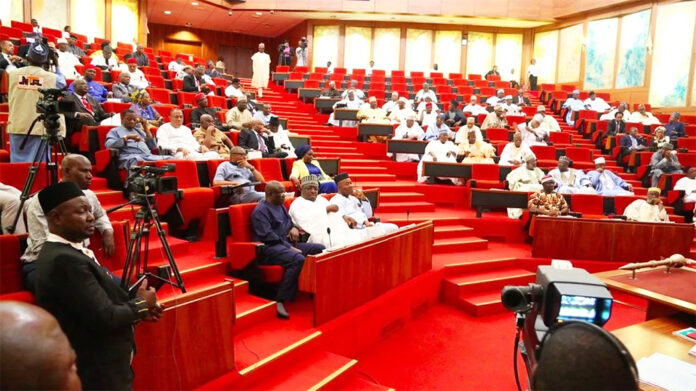As the 10th National Assembly prepares to resume plenary on October 7, the Senate is set to focus on key national issues, including the long-standing debate over local government autonomy, the upcoming 2026 Appropriation Bill, and critical reforms in Nigeria’s political and economic systems.
This was revealed in a statement issued on Sunday by Jackson Udom, the Special Assistant on Media to the Senate President.
According to Udom, lawmakers will give top priority to granting full administrative and financial autonomy to local governments across Nigeria. This follows a landmark Supreme Court ruling affirming the constitutional rights of local councils to operate independently.
“Part of what is expected when plenary resumes is that lawmakers will give legislative backing to the Supreme Court judgement on local government autonomy,” Udom said. “This will ensure both administrative and financial independence for councils across the country.”
Despite the court’s decision, Udom noted that many state governors are still controlling local government funds through joint accounts, a practice that continues to weaken grassroots governance and development.
He added that the Senate will take necessary legislative steps to stop the diversion of local government funds and make councils more accountable to the people they serve.
Another major item on the agenda is the upcoming 2026 Appropriation Bill, which President Bola Ahmed Tinubu is expected to present before the end of the year.
Udom said the Senate will treat the budget as a top priority, with special attention to how it addresses pressing national challenges such as inflation, unemployment, and insecurity.
“The budget is expected to address challenges like inflation, unemployment, and insecurity,” he said.
The 10th Senate, which came into office in June 2023, has repeatedly pledged to support economic growth, attract investment, and improve living standards through responsible budgeting and legislative actions.
Lawmakers are also expected to focus on strict budget oversight to ensure that government ministries and agencies implement projects effectively and transparently.
Udom further disclosed that the Senate will push ahead with the ongoing process of constitutional amendments. This process, according to him, is aimed at strengthening democracy, enhancing good governance, and ensuring better representation.
Also on the table are discussions around electoral reforms, particularly improving the legal framework guiding elections in Nigeria. These reforms are expected to target issues such as electronic voting, INEC independence, and the conduct of political parties.
The need for credible elections has remained a key concern among Nigerians, especially following complaints after the 2023 general elections.
Udom highlighted that national security and peacebuilding efforts will also be a major focus as lawmakers return. He stated that the Senate will review security strategies and work with relevant agencies to ensure the protection of lives and property across the country.
The Senate is expected to hold hearings and oversight visits to assess the performance of security agencies and ensure better coordination among them.
In closing, Udom said the Senate leadership, under Senate President Godswill Akpabio, is committed to strengthening legislative oversight in all sectors of government to promote accountability, transparency, and good governance.
“The 10th Senate and its leadership have emphasized the importance of legislative oversight in ensuring accountability and transparency in governance,” he said.

